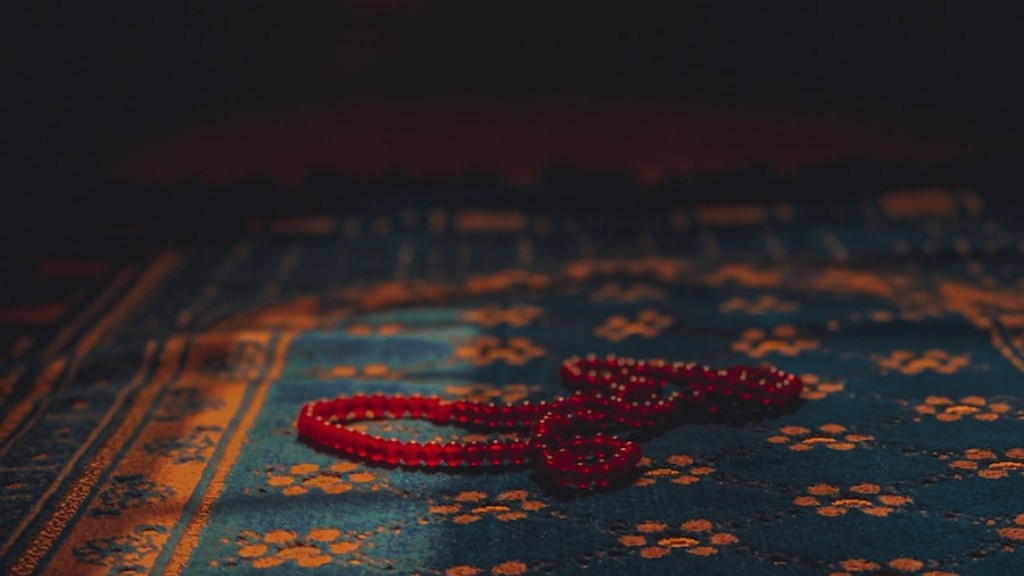Are There Multiple Gods In Hinduism?
Hinduism is a complex and vast religion which originated in the Indian subcontinent. It is one of the oldest religions in the world and is believed to have existed for more than 4,000 years. Hinduism has no single founder and no single scripture, and can therefore be seen as a tradition or collection of worldviews, belief systems and philosophical thought. Central to Hinduism are the theistic gods, and there is huge diversity in thought and practice concerning the nature and number of gods.
Hinduism is generally polytheistic and recognises several divine figures as aspects of one Supreme Being. The three main gods in Hinduism are Brahma, Vishnu, and Shiva. Brahma is the creator god, Vishnu is the preserver, and Shiva is the destroyer. They represent the cyclical aspects of life: Creation, Sustenance, and Destruction.
In addition to the three main gods and goddesses of Hinduism, there exist many other gods, goddesses and minor deities. Each of these deities is revered in different regions and by different sects. The most widely appreciated figures are: Ganesha (the remover of obstacles), Hanuman (the monkey god who helped Rama find his way back to Sita), Saraswati (the goddess of knowledge and wisdom), Lakshmi (the goddess of fertility), and Kali (the goddess of power and death). These deities are often depicted in imagery, art, literature, and other forms of worship.
Hindu texts describe how the universe is composed of three realms: the physical, the astral, and the spiritual. These realms each have their own gods and goddesses, and they are believed to interact with and affect the human realm. Although some people refer to the gods and goddesses of Hinduism as “polytheistic”, it is more accurate to say that there is a sense of monism, in which all of the gods and goddesses are seen as reflections or aspects of one divine reality.
In Hinduism, these gods and goddesses may have different responsibilities. Some may be custodians of certain aspects of life, some may be protectors of particular groups of people, and some may have other roles. For example, Hanuman is believed to bring courage and Hanuman Chalisa is often chanted for courage and protection. Similarly, Saraswati is the goddess of knowledge, and offerings, rituals and prayer are made to her when seeking to gain knowledge or ensure a successful start to a project. Ganesha is the god of success and Lakshmi of wealth and prosperity, who is often prayed to when seeking financial success.
Hindu scriptures provide further information about the nature of multiple gods, both in regards to their specific roles and the concept of supreme reality which exists beyond them. This allows Hindus to develop a more nuanced understanding of the divine, as well as how various gods, goddesses and spiritual concepts fits within the wider cosmology.
Bhakti Tradition
The Bhakti tradition is one that emphasises devotion and relationship to one or more divine figures. It focuses on the individual’s engagement with the divine and is often seen as the most experiential and intense form of Hindu practice. Bhakti emphasises one’s own devotion and relationship to the divine, rather than following particular rituals or formalities. This has enabled Hindus to develop personal connections with different deities. Some devotees might have a particular deity which they are especially devoted to, while others may have more of a universal approach, seeking to connect with all of the various gods and goddesses.
The Bhakti tradition has developed a large range of practices involving prayers, hymns, stories and mantras of various gods and goddesses. Different deities may be seen as associated with particular places, times and activities, and rituals might be developed to incorporate multiple gods and goddesses. For example, during a Hindu wedding, several different gods are often invoked in order to bring blessings.
The Bhakti tradition has also encouraged the development of devotional literature, such as books of hymns, rituals, stories and philosophical reflections. This literature helps to cultivate felt experience and understanding of various gods and goddesses, as well as the wider cosmology.
Region Specific Gods
Hinduism is so diverse and nuanced that many gods and goddesses are linked to different regions in India. Local gods and goddesses may be associated with particular places, activities, people and events. For example, Draupadi is a popular goddess in the south, while Kali is highly revered in Bengal. Similarly, Hindus living in the Himalayas may revere specific mountain gods and goddesses, while coastal areas may have associated sea gods and goddesses.
People living in rural areas might develop more specific links with local deities, incorporating them into their daily lives and worship. These gods and goddesses often provide protection from particular issues, such as natural disasters, wild animals, and misfortune. They may also become associated with specific rituals and ceremonies, such as offering food, clothing or lighting a lamp.
These regional gods and goddesses play an important role in the Hindu tradition, and there are many organisations and temples dedicated to them. For example, temples dedicated to Draupadi are dedicated to offering prayers, holding festivals and organising charitable activities.
The Spiritual Path
Hinduism includes various paths to spiritual development, and many people integrate the worship of multiple gods and goddesses as part of their spiritual practice. This includes various ritual and ritualised practices, such as chanting and prayer, offerings and meditation. Through devotion and ritual, people attempt to cultivate a closer relationship with the divine and gain insight into the nature of the divine.
In the yogic tradition, multiple gods and goddesses are seen as tools for understanding the inner world and gaining access to truth. For example, in tantric practice, multiple gods might be invoked to help with the internal journey of understanding. Similarly, in the Bhakti tradition, gods and goddesses might be invoked to help cultivate emotional intelligence, develop compassion and insight, and cultivate joy and peace.
In some schools of Hinduism, the aim of worship is to realise that all the multiple gods and goddesses are simply aspects of one Supreme Being. This practice is known as Advaita and helps people to understand the relationships between different gods and goddesses as part of a single divine reality.
Conclusion of Hinduism’s Complex Pantheon
Hinduism is a vast, diverse and complex religion with no single founder or scriptures. This, combined with its long history, has enabled Hindus to develop an incredibly nuanced understanding of the divine. Hindus commonly recognise the three main gods, Brahma, Vishnu, and Shiva, and other minor deities such as Saraswati and Ganesha. Additionally, many Hindus recognise and engage with local gods and goddesses, as well as deities associated with different spiritual traditions. The recognition and worship of multiple gods and goddesses provides a powerful way for Hindus to connect with and experience the divine.
God’s Manifestations According to Region and Culture
The worship and practice of multiple gods is an integral part of Hindu religion, and many Hindus venerate several divine figures. Different regions and cultures in India have their own particular gods and goddesses which are seen as the custodians of that area. These gods are often associated with particular activities, events and people, and develop rituals around them. For example, in the south, Draupadi is a popular goddess, while in the Himalayas, mountain gods and goddesses are revered. Additionally, in some forms of spiritual practice, multiple gods are used to help gain access to the divine.
The Significance of Multiple Gods
The presence of multiple gods in Hinduism is a demonstration of the broad and complex nature of the faith. It is also a reminder of the common origin of the major gods, which is often interpreted as a relationship between various aspects of the divine. For some Hindus, the gods are simply a way of connecting with different aspects of the same divine reality. For others, multiple gods may be experienced in a more personal way, allowing for a deeper connection to the divine. In either case, the recognition and worship of multiple gods is an integral part of Hinduism.
How Hinduism Forms A Multi-Faceted System Of Worship
The worship of multiple gods provides Hindus with a variety of ways to engage with the divine. Different gods and goddesses often have different responsibilities and roles, and some may be associated with particular activities, such as knowledge and wealth. Additionally, some forms of worship involve the invocations of multiple gods and goddesses, enabling Hindus to connect with several aspects of the divine at once. This level of complexity allows Hindus to form more personal connections with the divine and gain access to deeper understanding.
The Benefits of Engaging With Multiple Gods and Goddesses
In Hinduism, multiple gods and goddesses are seen to represent different aspects of the same divine being, and worshipping multiple deities gives Hindus access to a more experienced and personal connection with the divine. It also allows for a level of diversity and nuance that can be incredibly empowering and stimulating. Additionally, worshipping multiple gods and goddesses provides Hindus with a way to develop a more holistic and integral approach to spirituality, enabling them to experience the divine in its many forms.


